APS Highlights 2012-13

It’s an exciting time to be an APS Member. The 25th anniversary is approaching, and we mark that milestone with a new journal, record convention attendance, high-profile media coverage, and much more. Here is a glimpse of what 2013 has in store.
25 Years of APS and Science
This past May, APS held its BIGGEST CONVENTION EVER with more than 4,300 attendees! But we now shift our focus to 2014 in San Francisco, CA. Mark your calendar and come celebrate the science with your colleagues.
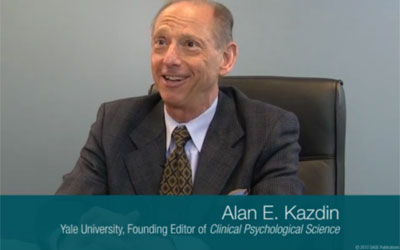
APS’s New Journal: Clinical Psychological Science
APS has launched a unique new journal, Clinical Psychological Science, with Founding Editor Alan Kazdin at the helm of a distinguished editorial team. The journal features cutting-edge clinical science across the full range of scientific perspectives. It is currently accepting submissions in cross-cutting and multidiciplinary areas that are helping to define the field. The first issue will publish in early 2013, but articles will be available online beginning in september. CPS will follow in the successful footsteps of APS’s other prestigious journals: Psychological Science, Current Directions in Psychological Science, Perspectives on Psychological Science, and Psychological Science in the Public Interest.
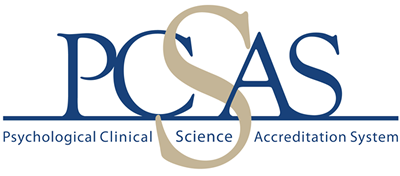
APS and Clinical Science Accreditation
APS is paving the way for the exciting field of clinical science with the development of an alternative accreditation system. Schools accredited through the Psychological Clinical Science Accreditation System (PCSAS) will be able to meet the unique needs of today’s clinical scientists.With APS support, PCSAS received recognition through the Council for Higher Education (CHEA) which evaluates and recognizes accrediting organizations across a wide range of educational fields.
Building a Better Psychological Science
Psychological science has come of age. But the rights of a mature discipline carry with it the responsibility to maximize confidence in our findings while simultaneously ensuring that funding sources and publication outlets support best practice. APS is taking meaningful action to address these challenges, including convening discussions with funding agencies and leading scientists, proposing changes to the journal Psychological Science that will encourage transparency and replication, and publishing a special replicability issue of Perspectives on Psychological Science, in which distinguished scientists discuss at length the topic of replication and its importance and implications for our field. In addition, this May at our 25th APS Annual Convention in Washington, DC we are bringing together luminaries from a variety of subdisciplines in psychological science to take part in an extended theme program, “,” which will continue the important conversation on replicability.
Psychological Science in the News
From social media to traditional media, APS is dedicated to giving psychological science away. Our research regularly makes headlines around the world, gaining coverage in high-profile media outlets including TIME, The Wall Street Journal, CNN, BBC, Los Angeles Times, Reuters, Der Spiegel, and Le Monde. And our presence on social media reaches farther every day. Through platforms like Twitter and Facebook, APS is able to bring together experts, students, and members of the public to discuss the latest developments in psychological science.
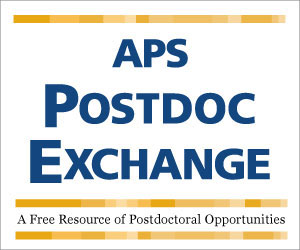 A Network for Postdocs
A Network for Postdocs
The APS Postdoc Exchange connects psychology researchers around the world with a free network for researchers to list postdoctoral opportunities. With over 120 listings, the Postdoc Exchange is a great example of how APS is connecting the global scientific community.
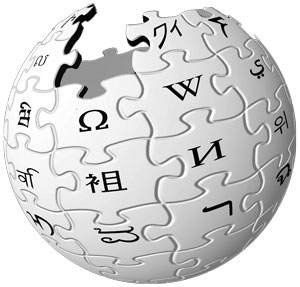 Improving Psychology Entries in Wikipedia
Improving Psychology Entries in Wikipedia
Through the APS Wikipedia Initiative, APS Members are leading the effort to improve the quality of psychology entries in Wikipedia, including developing and improving Wikipedia articles as student writing assignments. More than 1,400 individuals have participated and provided the most up to date and accurate information that fully represents the theories, methods, and findings in psychological science. As we head into 2013, APS will continue to encourage members to get involved with the project, through individual updates or assignments to students as required coursework.
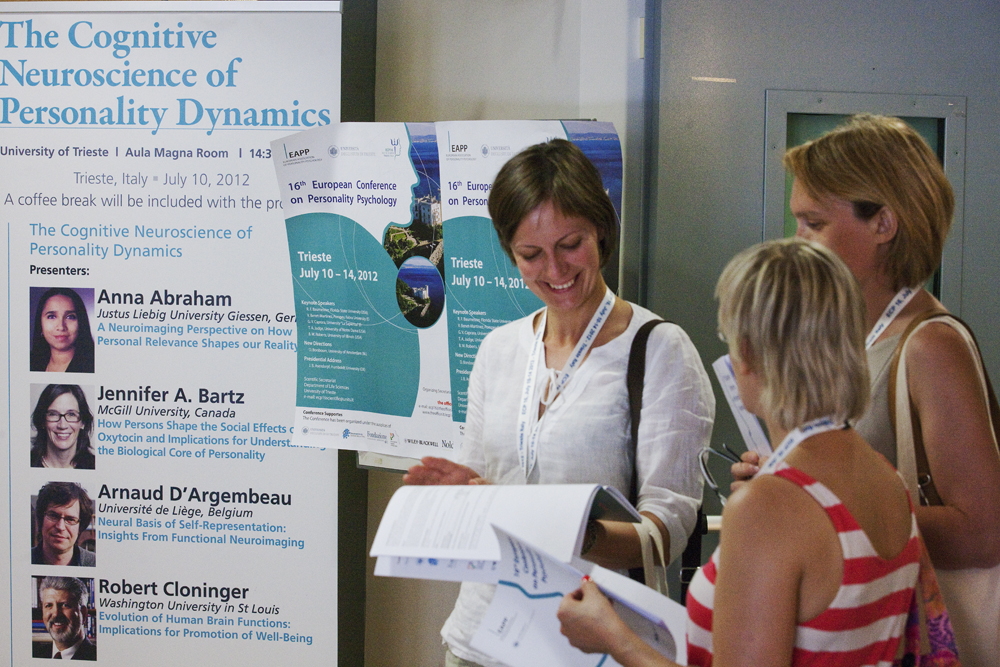 International Community
International Community
In addition to the Postdoc Exchange and the Global Observer, APS is to promote international connections across psychological science. This year APS and the European Association for Personality Psychology co-sponsored a symposium on The Cognitive Neuroscience of Personality Dynamics. Last year, APS co-sponsored programs on:
- Social Psychology and the Neurosciences: Perspectives and Pitfalls
- Exploring the Dynamic Interaction Between Genes, Environment and the Brain
- Where Is Embodiment Going?
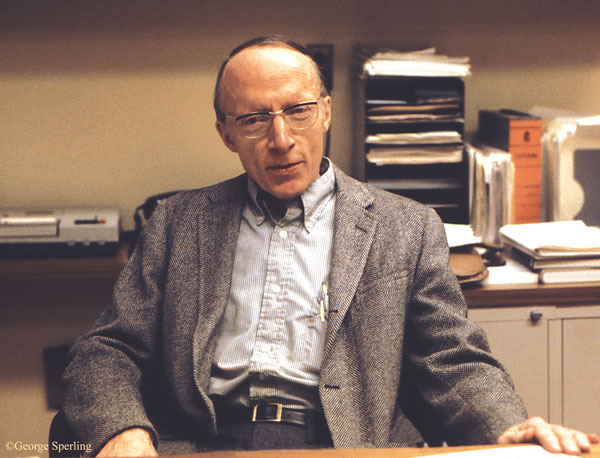 William K. & Katherine W. Estes Fund
William K. & Katherine W. Estes Fund
William K. Estes was a pioneer. His work in quantitative and mathematical psychology revolutionized the way we engage in research. Bill was a leader who received some of science’s highest honors, including the National Medal of Science. He brought the field the conditioned emotional response paradigm (with B.F. Skinner) and the stimulus sampling theory. He was editor of the field’s premiere journals – including a pivotal role as founding editor of Psychological Science. (Read remembrances written by leading researchers and close friends of Bill.) To honor Bill’s contributions to the field, APS established the William K. & Katherine W. Estes Fund. Kay was also on the front lines with Bill, even serving as managing editor for Psychological Science in its first years. Bill and Kay were a team who gave much to psychological science, and in that spirit, this fund will help shape and support new initiatives in methodology, quantitative and mathematical psychology, and related areas. These initiatives include an annual Estes Fund program at the APS Convention or other events. The first of these was a symposium held at the 2012 APS Convention featuring Lawrence Erlbaum, Robert A. Bjork, and Richard M. Shiffrin. To give to the fund, click here.
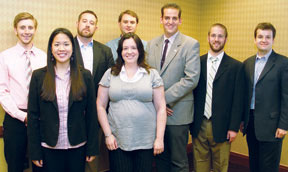 Student Caucus
Student Caucus
The APS Student Caucus (APSSC) provides Student Affiliates with resources and networking opportunities to support students as they develop their careers. The Student Caucus publishes a regular feature in the monthly Observer magazine, offers a mentor-matching program, and provides students with an online funding resource updated regularly with opportunities around the world for undergraduate and graduate students. APSSC research competitions recognize excellence in student research presented at the APS Annual Convention. In 2012, the three research competitions received a record number of submissions.
Teaching
One of APS’s founding principles is a dedication to supporting the teaching of psychological science. In support of these efforts, APS provides teachers of psychology access to the latest research and news in scientific psychology as well as tips on teaching and videos for the classroom. The APS Fund for Teaching and Public Understanding of Psychological Science gives small grants to support projects advancing the teaching of psychology. And APS co-hosts with the Society for the Teaching of Psychology a Teaching Institute in conjunction with our own Annual Convention, in addition to providing annual support for the National Institute on the Teaching of Psychology.
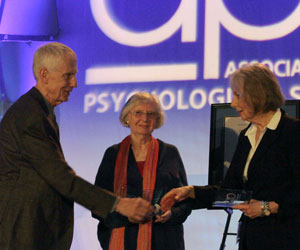 Awards
Awards
The awards and honors presented by APS annually recognize outstanding achievements in the field of psychological science throughout an individual’s career. APS awards recognize sustained contributions to the field (Fellows), transformative early career contributions (Janet Taylor Spence Fellows), a lifetime of contributions to applied psychological research (James McKeen Cattell Fellows), or a lifetime of research and contributions to the basic science of psychology (William James Fellows). In 2013, a new award will recognize individuals for a distinguished record of mentoring students who go on to have productive and influential research careers.
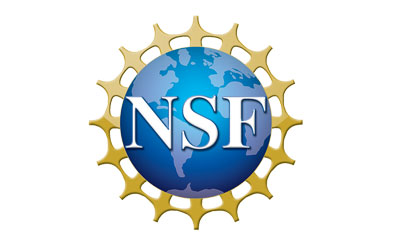 Basic Clinical Psychological Science? NSF Says ‘Yes!’
Basic Clinical Psychological Science? NSF Says ‘Yes!’
APS continues to be an effective advocate for behavioral science policy and research funding. Following months of discussion with APS and Congress, the U.S. National Science Foundation (NSF) changed the rules for its prestigious Graduate Research Fellowship Program (GRFP) to allow students from clinical psychology programs to apply. A number of clinical psychological science students have already been funded as a result
.

